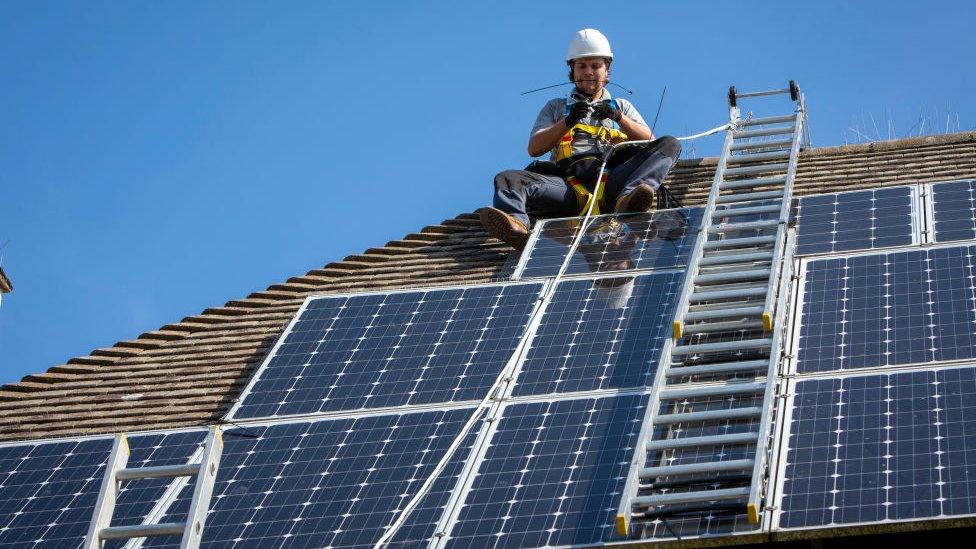Cost of living: Swansea estate cuts bills by generating energy
- Published
Energy bills: House powered by solar power and a battery
Access to solar panels and a home battery has reduced energy bill worries for Nikita Harris on one of Europe's largest green retrofit projects.
"Where I used to worry going to bed, I don't have to worry now," said Nikita, 26, whose home in Swansea now runs partially on a battery.
Some 644 properties are being connected to a unique energy-sharing scheme, social housing provider Pobl said.
Housing Minister Julie James has called the scheme "transformational".
Power from linked solar panels on roofs across the Penderi estate is used to charge batteries in homes.
Nikita's battery is fitted to a wall just inside the entrance of her terraced property.
By limiting the use of her big appliances to when the sun is up, the mother-of-two said she had cut her electricity bills significantly.
"I used to spend £20 a week on my electric," she said, "now with the solar panels and battery I'm putting in £10 a week.
"By having the battery in my home... I feel calmer," she said, explaining how sad she is for other people faced with having to limit their electricity use.
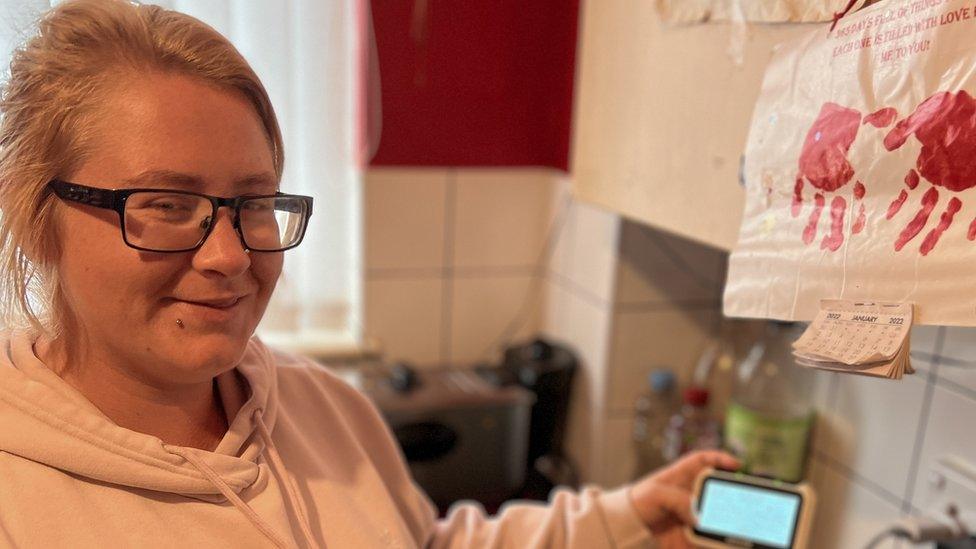
Nikita says her electric bill for washing clothes has gone from pounds a wash to pence
"It's hard watching people say they're struggling to get food or do they get electric," she said. "It is worrying times for everybody, but this has helped. "
With energy storage and smart energy management technology now installed in 200 homes, Pobl said the estate had already started to cut the amount of power being drawn from the national grid.
32% of Welsh homes were built before 1919
43%in private rented accommodation are in pre-1919 homes
£0.5bn to £1bn retrofit spending suggested per year for the next 10 years

The project was funded by £3.5m from the European Union, £1.5m from Pobl, and a £900,000 infrastructure upgrade by Western Power.
Retrofitted homes on the estate are expected to generate up to 60% of their own electricity, reducing bills, and cutting carbon emissions by as much as 350 tonnes per year.
"The aim is to... protect our customers from the peaks and troughs in the volatility in the market that we currently see now," said Pobl director of regeneration Solitaire Pritchard.
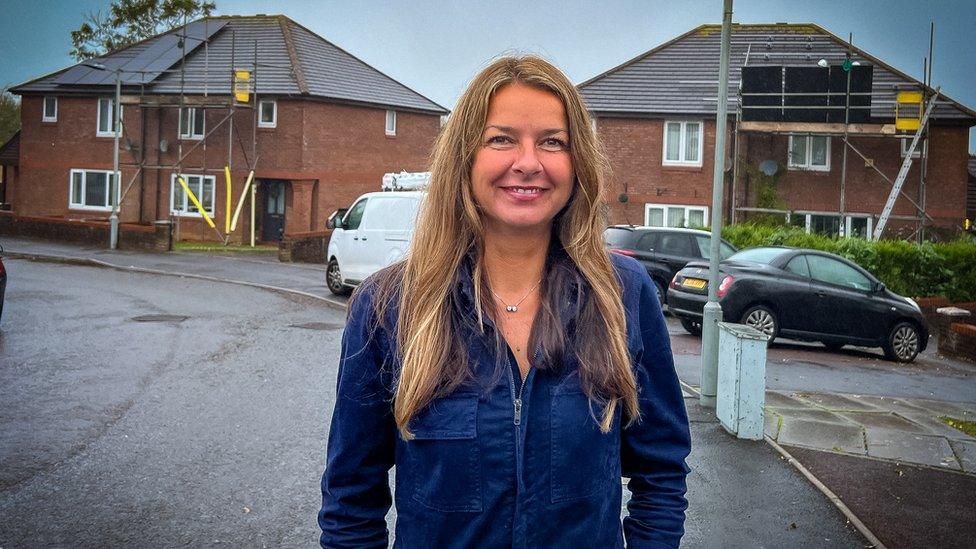
Solitaire Pritchard from social housing provider Pobl says residents are "learning to live" with battery technology
Despite the size of the retrofit, which Pobl described as Europe's largest, Penderi represents a tiny fraction of the 19,000 properties owned by the social housing provider.
"We hope to learn how people live with this technology," Ms Pritchard said, explaining how using a battery to power your home is new for most people.
"We're hoping that what we've learned here can be shared across the sector and obviously then applied across all homes in Wales."
There would need to be 50,000 homes transformed a year until 2050, experts say
The company doing the retrofit is renewable energy supplier Sero, and project manager Anne-Marie Ratcliffe said a key part of the work was teaching residents how to get the most out of the technology.
"This is the biggest energy retrofit project of its kind in the UK so it's something incredibly innovative and incredibly exciting to be a part of," she said.
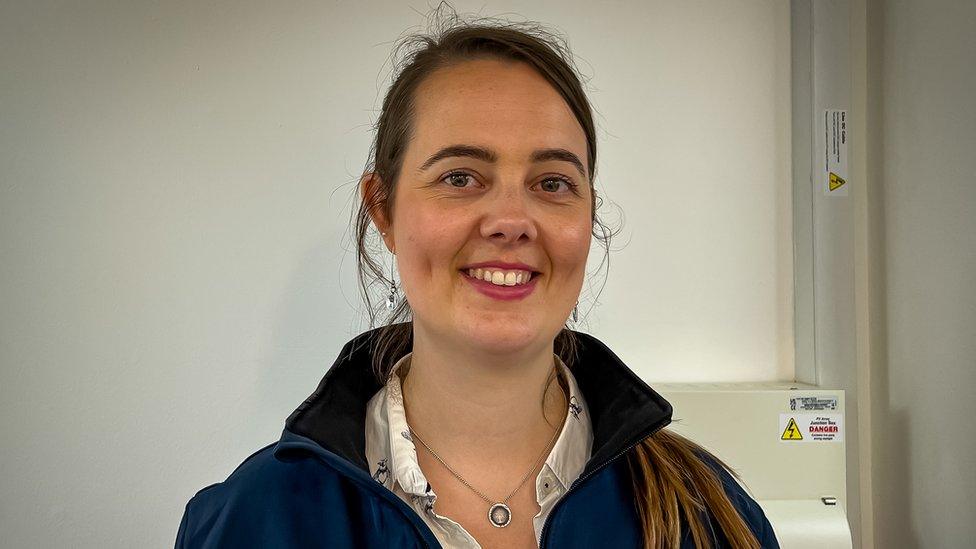
Project manager Anne-Marie Ratcliffe says if the solar sharing and battery storage scheme works it can be copied across the UK
"It's incredibly important, given both the climate crisis and the energy fuel cost price crisis at the moment," she added. "The really innovative part... is the sharing scheme whereby if you can't have [solar panels] on your home you can still benefit from the installations that are happening around the community.
"Every person who's participating in this scheme will see a benefit to their energy bills and their energy usage in their homes," she added.
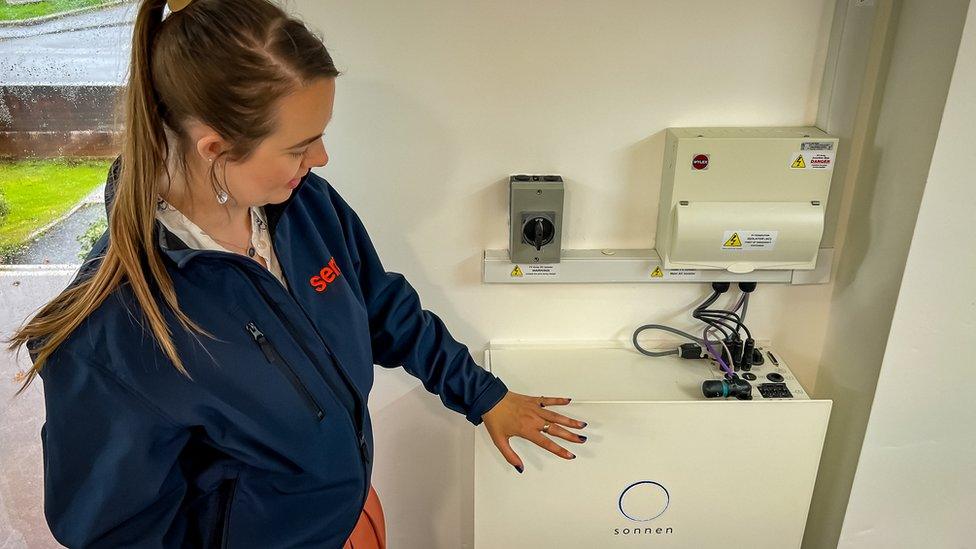
Anne-Marie Ratcliffe says the in-home battery is controlled by smart technology that determines "the most energy and cost-efficient way to run the home"
In the coming months, she said, any excess power produced at Penderi will be fed back into the network grid, generating rebates on participants' electric bills.
"This project is reducing the amount of energy being drawn off the grid," she said. "That is reducing the amount of carbon that has been produced by the community as a whole and by individuals within their homes."
She said that if the project helped to "prove" the technology, it will "hopefully then roll out to more communities".
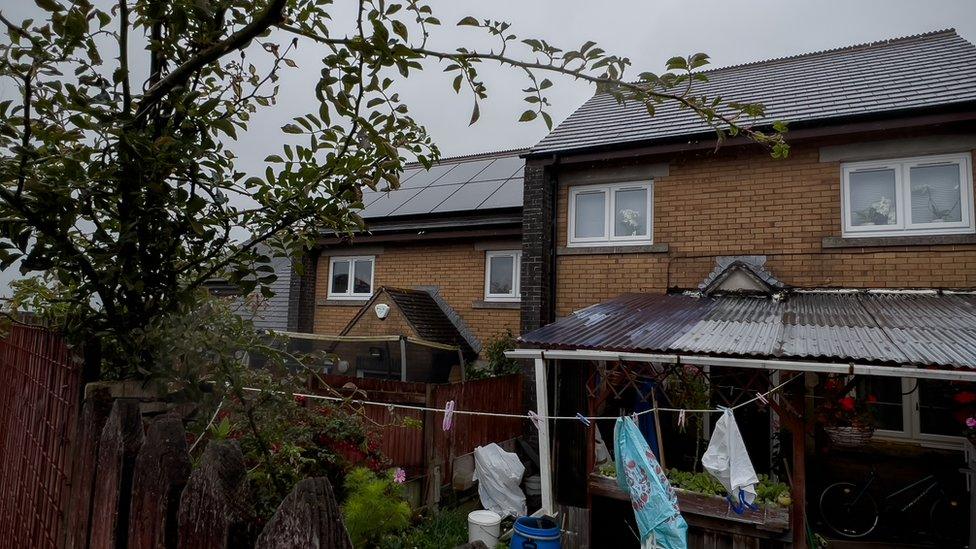
Some homes have solar panels, others do not, but all participants in the scheme share the power produced
Lessons learned from the project will also inform the wider spread of renewable energy technology in thousands of homes throughout the Swansea Bay City Region, as part of the £1.3bn City Deal, in the Homes as Power Stations project - subject to the approval of the UK and Welsh governments.
This would see energy efficiency technology retrofitted to 7,000 homes with a further 3,300 new build homes also benefiting as part of the project, which is led by Neath Port Talbot council.

BAFTA CYMRU WINNERS: Celebrate the best television from Wales
WALES' HOME OF THE YEAR: Which home will Owain, Mandy and Glen judge worthy?

Related topics
- Published23 November 2023

- Published28 March 2022
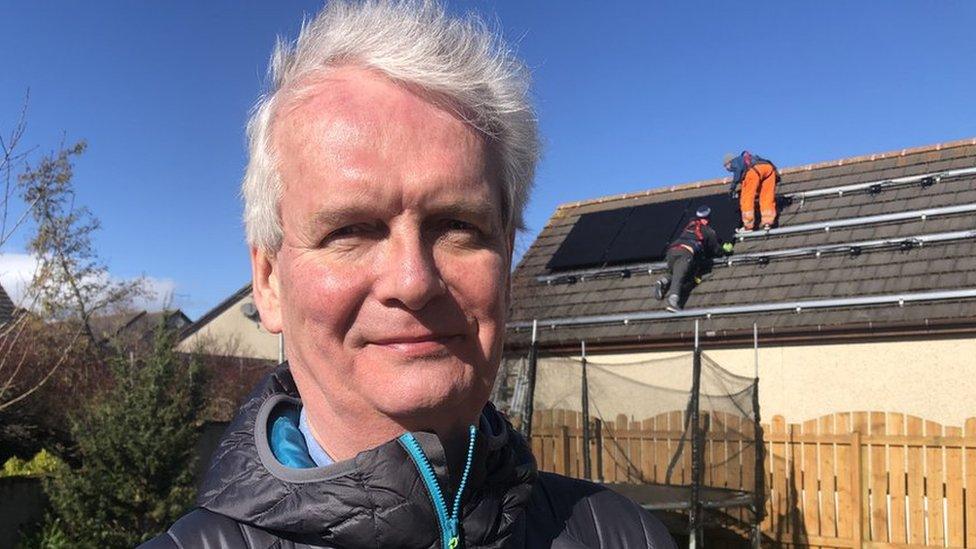
- Published12 June 2020
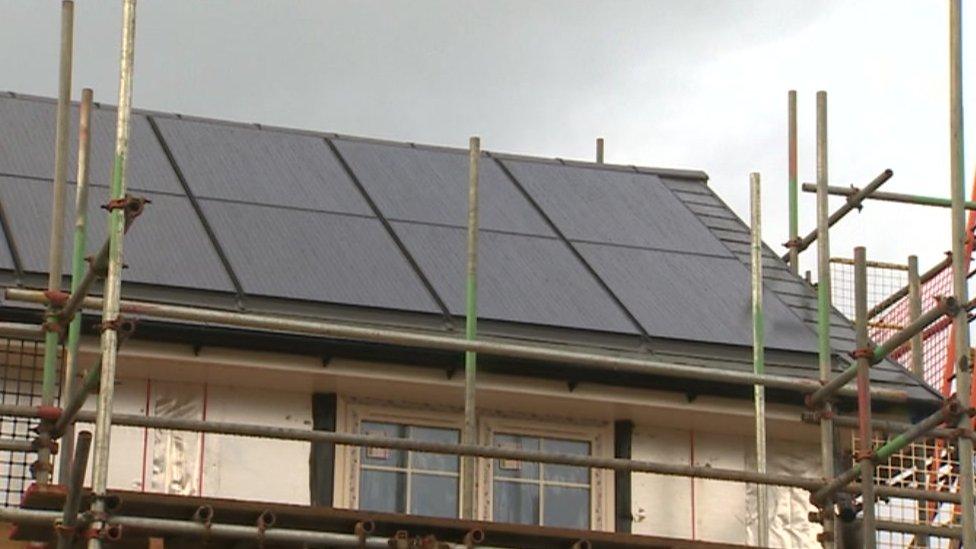
- Published30 September 2022
